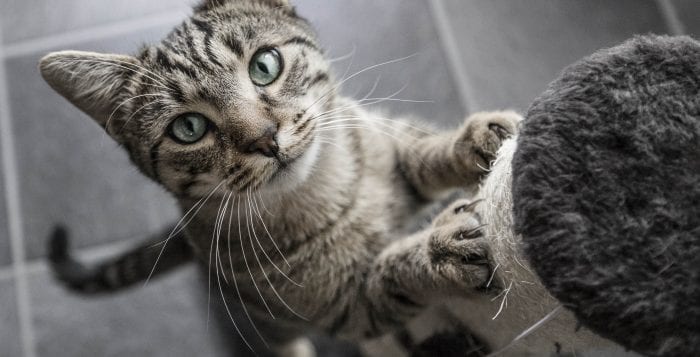Ask the Vet: The coronavirus in dogs and cats
By Matthew Kearns, DVM
Concerns about a human coronavirus, better known as COVID 19, is raising fears for a global outbreak. The good news is that although COVID 19 may have its origins in a coronavirus found in bats, THERE IS NO EVIDENCE AT THIS TIME that the known canine and feline coronaviruses can spread from animals to humans. The risk of spread of COVID 19 is human to human at this time.
Coronavirus in dogs typically causes enteritis, or inflammation of the bowel. Most of the cases cause a mild, self-limiting diarrhea that lasts for a few days and does not even require a trip to the veterinarian’s office. Less commonly, more severe diarrhea, loss of appetite, or vomiting occur.
More recently, a canine coronavirus respiratory virus has been isolated in association with other respiratory viruses into a disease termed Canine Infectious Respiratory Disease Complex (CIRDC). Again, the symptoms are usually mild and self-limiting rarely causing death.
Coronavirus in cats is much more serious. Most coronavirus in cats also cause self-limiting gastrointestinal symptoms similar to dogs. However, there is a particular strain of feline coronavirus that leads to a disease process called Feline Infectious Peritonitis, or FIP for short.
This FIP strain of the coronavirus appears to be a mutation of one of the more benign strains of the enteric (gut) coronavirus. Rather than a self-limiting diarrhea, the deadly FIP develops. FIP has two forms: a “wet form” and a “dry form.” In the wet form a high fever and effusion develops. This effusion, or protein rich fluid, usually develops in the abdomen causing a peritonitis. Less commonly the fluid develops in the chest cavity causing a pleural effusion. In either case the outcome is severe and always fatal. The symptoms develop rapidly (over a few days to, at most, a few weeks). The patient stops eating and is usually humanely euthanized if he or she does not pass away on their own.
There is also a less common “dry form” of the disease. The dry form of FIP is a slower developing sequela of the disease. Rather than a rapid progression of disease over a few weeks, the dry form takes months to years. The dry form produces a granulomatous response and produces deposits of a specific type of scar tissue in internal organs. These internal organs then begin to dysfunction and ultimately shut down.
My experience has shown patients usually are humanely euthanized or pass away from kidney failure secondary to the dry form of FIP. The kidneys, unlike some other organs, do not regenerate cells or repair damage. Once a certain percentage of the kidneys stops functioning the rest of the body quickly shuts down.
There are both feline and canine coronavirus vaccines but their actual efficacy is questionable. There are so many strains that the single strain in the vaccine protect against them all. It would be like having a single flu vaccine that is never modified year to year. The good news is that most cases of both feline and canine coronavirus are mild and self-limiting. Also, I have found no information at this time that states that the canine or feline coronavirus poses any threat to human health.
If you have questions that are not answered in this article, or are concerned about the health of your individual pet please contact your regular veterinarian for an appointment.
Dr. Kearns practices veterinary medicine from his Port Jefferson office and is pictured with his son Matthew and his dog Jasmine. Have a question for the vet? Email it to [email protected] and see his answer in an upcoming column.







